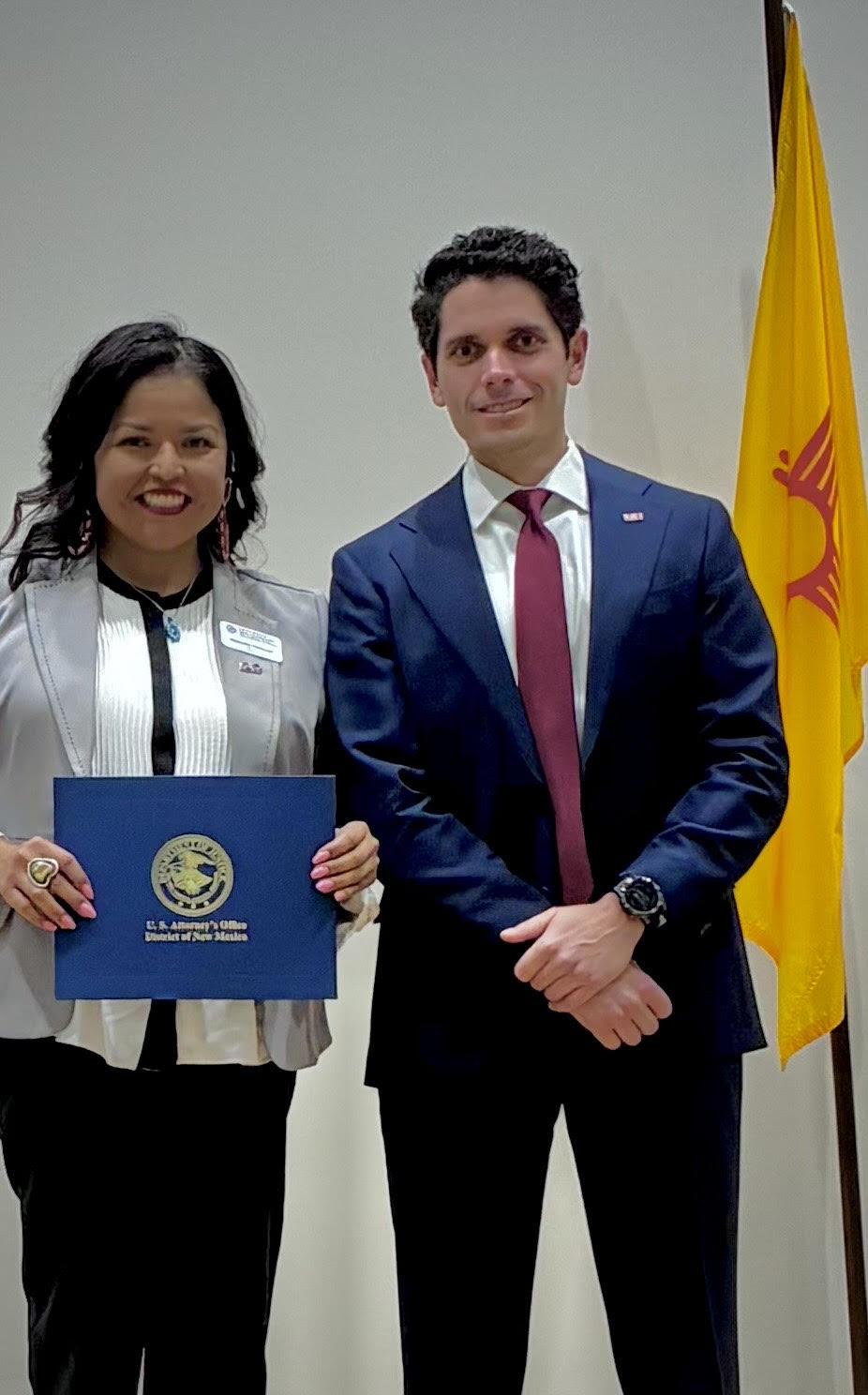Colorado - In a powerful recognition of its growing regional impact, the Division of Criminal Justice’s Office of the Liaison for Missing and Murdered Indigenous Relatives (OMMIR) has received the 2025 U.S. Attorney General’s Office Law Enforcement Award (District of New Mexico) for outstanding contributions to Missing or Murdered Indigenous Persons (MMIP) cases.
“This award is a powerful reflection of what’s possible when we approach this work with humility, partnership, and a commitment to listening first,” said Matthew Lunn, director of the Division of Criminal Justice. “The progress OMMIR has made in just a few years demonstrates how meaningful trust-building can create real change for Indigenous communities both in Colorado and beyond."
Since its 2022 launch, OMMIR has prioritized community engagement, cultural sensitivity, law enforcement training, and multi-agency collaboration. Through this approach, the office has strengthened Colorado’s MMIP response while contributing to broader regional efforts to better serve Indigenous families.
Director Melody Delmar accepted the award on May 21, 2025, in Albuquerque, New Mexico, alongside U.S. Attorney Ryan Ellison and regional law enforcement partners.
"Every family’s story matters. This recognition is not about any one office or agency; it's about the partnerships we’ve built and the voices we continue to elevate,” said Delmar. “We carry this responsibility with care, knowing that true change comes when communities are seen, heard, and included in every step of the process." In 2024, DCJ
In 2024, DCJ
- Expanded staff capcity,
- Reviewed and updated Colorado's mandated MMIR traning (C.R.S. 24-31-315)in collaboration with Colorado POST,
- Launched the first Multi-State MMIR Law Enfocement Convening,
- Establised new partnerships with:
- U.S. Attorney General's Office
- Federal Bureau of Investigation
- National Missing and Murdered Indigenous Persons initatives
The honor reflects the critical role OMMIR has played in building cross-jurisdictional partnerships to address MMIP causes, many of which involve multiple state, tribal, and federal agencies.
